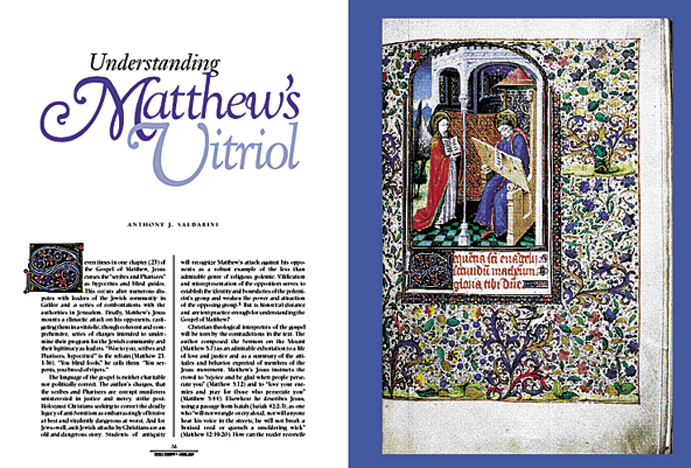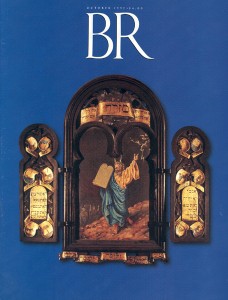
The Evangelist Matthew considered himself and his followers Jews. The gospel writer saw himself as being involved in a Jewish struggle, as he and the emerging rabbinic movement vied for leadership. Anthony Saldarini, in his excellent BR article on the Gospel of Matthew 23, correctly portrays Matthew’s attack on the “scribes and Pharisees” as an intra-Jewish dispute.a
In fact, Saldarini was more right than even he may have realized. Not only was the dispute internecine, Matthew’s specific criticisms of the scribes and Pharisees are deeply rooted in contemporaneous Jewish tradition. Pharisees were reproached as hypocrites in rabbinic sources as well as in Matthew.b In the Talmud, Pharisees are criticized for showing off their religious devotion in every possible way: One is castigated for “carr[ying] his piety on his shoulder,” another for looking for tasks to perform merely to prove that he observes everything possible.1
Already a library member? Log in here.
Institution user? Log in with your IP address.

